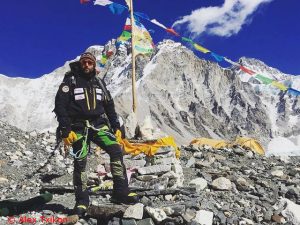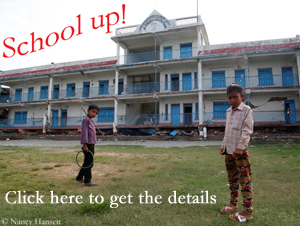Expeditionary arrhythmia
Expeditions can also get out of the rhythm. For example, if a long bad weather period thwarts all plans or if unpredictable things happen such as illnesses or injuries. Alex Txikon‘s Everest winter expedition, however, has stuttered for another reason. After the failed first summit attempt, the Nepalese agency Seven Summits Treks, with whom Txikon cooperated, yesterday ordered surprisingly to break immediately the Base Camp and return. This decision was “unilateral”, the team of the 35-year-old Basque said. Alex was quoted as saying, “I do not want to leave Everest.”
Chhepal Sherpa injured
Already after the return to Everest Base Camp, Txikon had announced that for him the expedition was not yet over. During the summit attempt violent storm had forced the team back at the 7,950-meter-high South Col. On the descent, the climbers had got into an avalanche on the Lhotse flank. Chhepal Sherpa had been hit on his head so badly that for him the expedition was definitely finished. However, it was not planned, that the entire team should fly back to Kathmandu. But this was exactly what the Nepalese agency ordered.
“Back in charge”
Back in Nepal’s capital, all the participants were sitting together today. Txikon expressed his firm intention to continue the expedition at any cost. “I’m back in charge,” Alex said afterwards. After a few days of rest in Kathmandu, he would return to Everest Base Camp along with Norbu Sherpa, Nuri Sherpa, Phurba Sherpa and Pemba Sherpa to climb up again – “with even greater inner drive to reach this summit in winter and, of course, with my initial ideal of not using artificial oxygen.” So far only the Sherpas who accompanied Alex had used breathing masks.
The more or less forced days in the about 1,400-meter-high city of Kathmandu will probably not destroy the acclimatization, but the stay 4,000 meters lower than Base Camp is certainly not ideal. Not to mention the expeditionary arrhythmia.








